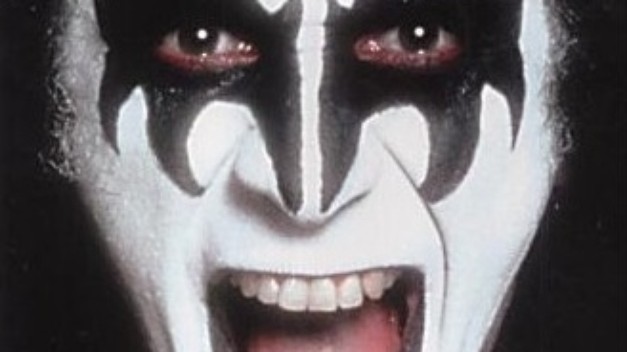Nathan Rabin | A.V. Club
 Gene Simmons is the preeminent villain of Kiss mythology. He isn’t just notoriously selfish and leering in a realm where those qualities are ubiquitous; the man pretty much embodies rock-’n’-roll greed and lust. The great Jon Wurster does a devastating impersonation of Simmons on The Best Show and Best Show Gems in part because he doesn’t have to exaggerate much to make Simmons seem hilariously self-serving and mercenary. In Peter Criss’ Makeup To Break-Up, which I just wrote about for this column, Simmons is certainly the bad guy, a cold-hearted, money-grubbing bastard who ran the band like a dictatorship during the boom years and treated drummer Criss and guitarist Ace Frehley like disposable employees during their lucrative comeback tours, all despite the original vision to have Kiss be like The Beatles—four individual superstars with strong personas in one band. (While plenty of bands emulate the Beatles, note that none of them ever envision themselves as being composed of “four Ringos”.)
Gene Simmons is the preeminent villain of Kiss mythology. He isn’t just notoriously selfish and leering in a realm where those qualities are ubiquitous; the man pretty much embodies rock-’n’-roll greed and lust. The great Jon Wurster does a devastating impersonation of Simmons on The Best Show and Best Show Gems in part because he doesn’t have to exaggerate much to make Simmons seem hilariously self-serving and mercenary. In Peter Criss’ Makeup To Break-Up, which I just wrote about for this column, Simmons is certainly the bad guy, a cold-hearted, money-grubbing bastard who ran the band like a dictatorship during the boom years and treated drummer Criss and guitarist Ace Frehley like disposable employees during their lucrative comeback tours, all despite the original vision to have Kiss be like The Beatles—four individual superstars with strong personas in one band. (While plenty of bands emulate the Beatles, note that none of them ever envision themselves as being composed of “four Ringos”.)
Simmons has embraced the role of heavy in his public life—sneering defiantly at critics, extending a middle finger to punks/true believers who think music should be about art and integrity and not chicks and money, and lasciviously waggling his famously long tongue at the highbrow gatekeepers of culture who are aghast at the nakedness of his sexism and greed (most notably Terry Gross of Fresh Air). There’s an unmistakably preemptive quality to Simmons’ confrontational, unapologetic shtick: A man who loudly professes to have no integrity or values cannot be accused of betraying his integrity or values. And a man who makes it clear that he cares only for power, money, and women cannot be accused of losing his way.
But what does the villain have to say about himself and his path to infamy? That is the question behind Kiss And Make-Up, Simmons’ relentlessly self-aggrandizing, intensely unedifying 2001 memoir. In the book, Simmons pats himself on the back for having the courage to deliver the unvarnished truth about Kiss in spite of what fans might think, but that mostly means he’s comfortable repeatedly trashing Ace Frehley and Peter Criss. To
Continue reading
